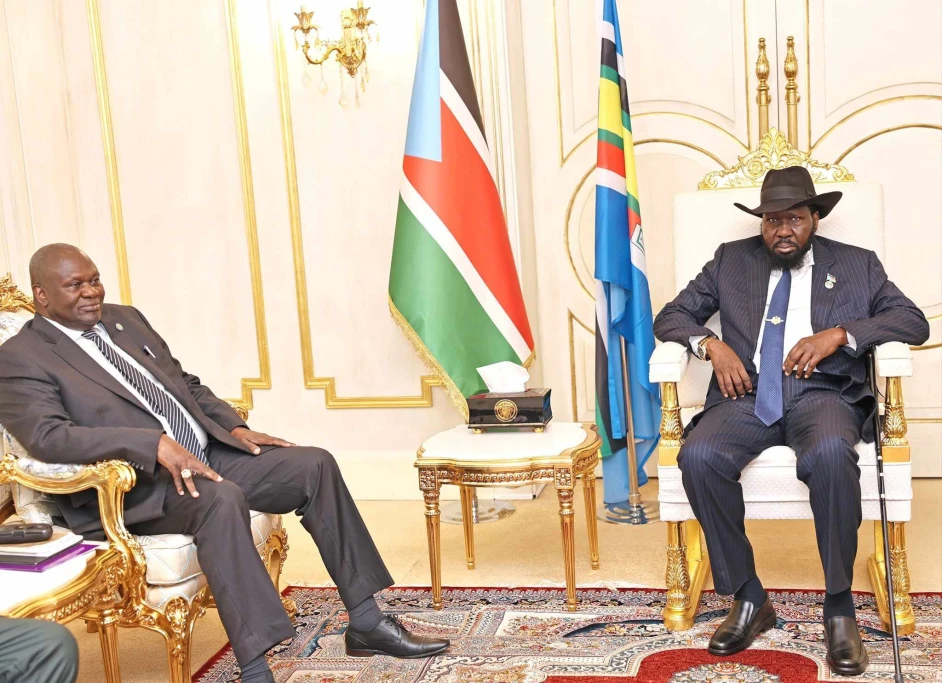
President Salva Kiir and First Vice President Dr. Riek
Machar met on Monday and discussed the Twic-Abyei conflict and the forthcoming elections.
As the country prepares for the first-ever general
elections, it is also experiencing circles of deadly intercommunal conflict in parts of the country, questioning the possibility of holding peaceful
elections at the end of the year.
In a brief statement shared by the office of the president,
the two peace principals "called for an end to the sub-national violence in parts of the country."
Kiir and Machar's discussion 'centered on the land-related
conflict between the Ngok of Abyei Administrative Area and Twic of Warrap State and called on the communities to end the conflict.
The conflict between Twic and Ngok Dinka has persisted
despite President Kiir issuing several orders to stop the violence.
Without adherence to Kiir's orders that include
cessation of hostilities, disarmament, and deployment of forces as measures to bring the conflict to an end, the communities continue to clash, resulting in more loss of lives -- more than what was lost before the orders.
"The meeting further discussed the upcoming
elections, particularly funding of the electoral institutions and the Phase II
of the Security Arrangements in accordance with the September 2018 revitalized
peace agreement," writes the official presidential Facebook page.
The 2018 peace agreement requires that the unity government to unify,
train, and deploy the forces in two phases to complete the security arrangements.
This will address the sub-national violence by providing maximum
security for the citizens, create safe and conducive environment for the
conduct of free, fair, and credible elections by the end of the transitional
period.
In 2022, the government graduated over 50,000 forces in
phase one and they are now being deployed to different places across the
country; and phase two forces are expected to start their training soon as the
final phase of the security arrangement.